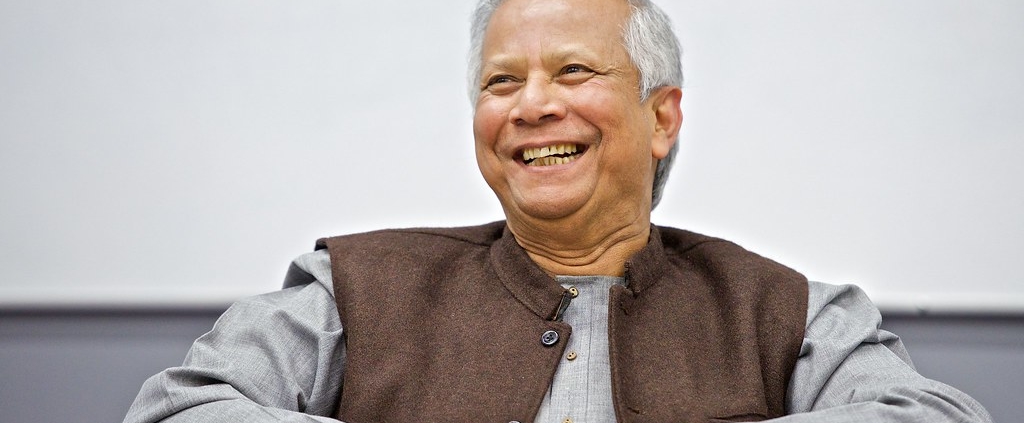Muhammed Yunus is a 2006 Nobel Prize winner who founded the Grameen Bank in Bangladesh which lends to entrepreneurs who cannot borrow under regular banks and founded the microcredit movement which focuses on moving families around the world out of poverty. He has recently published a new book titled “A World of Three Zeroes” which focuses on his vision for a kinder, gentler planet without poverty, unemployment or environmental devastation. A large theme of this is the positive impact that social businesses (or social enterprises) have on moving towards a better future.
Muhammed Yunus was interviewed by Wharton School of the University of Pennsylvania at the end of 2017, and we have noted a couple of stand-out points from the extract of that interview below:
Wharton: Do you see the number of social-impact businesses increasing around the world?
Yunus: I see it every day, every moment, because people really have that feeling inside of them. This is my thesis of what I promoted in the book. The capitalist system is based on an interpretation that human beings are driven by self-interest, meaning selfishness. That is absolutely the wrong interpretation of a human being. A real human being is not all about selfishness. A real human being is selfishness and selflessness at the same time.
You double up both sides, whatever strength you want to put in each side. That’s your upbringing, your schooling and so on. But you have two options, and you can do both. You can create business to make money for yourself – that’s a selfishness – and you can create business to solve problems, make other people happy in the world, protect the world. That’s a selflessness, and that’s a business that we create called social business.
Social business is a non-dividend company [meant] to solve human problems. We completely eliminate the idea of making personal profit in social businesses. We totally dedicate ourselves to solving problems. Now that the idea of social business is growing, young people are coming up with big ideas, big businesses are coming up to create social businesses alongside. I’m very happy about that. Hopefully, schools like Wharton will be teaching social business as a separate subject and also give social MBAs to young people who will be preparing to operate social businesses, manage social business, create social business.
Wharton: Why didn’t we see social businesses 50 years ago?
Yunus: We don’t have to blame ourselves for not seeing it 50 years back, but we must blame ourselves why are we not seeing it now… You see everything (and it’s) about dollars, how to make dollars. Why don’t you for a while take the dollar-sign glasses off your eyes and put on the social business eyes? Suddenly, you see lots of opportunity for people to come up with creative ideas, to solve the problems of the people. If we bring all of our creative energy of the whole world, all of these problems that we see every day will disappear.
Wharton: A lot of that will rely on the entrepreneurship and the mind-set that people have. They have to take incremental steps and build on it.
Yunus: And when you become an entrepreneur, you have two options. You can run a business to make money for yourself, or you can run a business to solve people’s problems. And you can do both. You can have a money-making business for yourself, and you have a social business for yourself, and you feel good that you are doing something that touches the lives of so many people around you.
The full extract of the interview is up on the Wharton website.
This encouraging interview reinforces the significance of the impact that social enterprises can have. We hope that these snippets from the interview inspire you, as they did us.
More information on the book, including a link to order it, can be found here.
We have a team at Parry Field who work in the Social Enterprise/Start-up sector who would be more than happy to assist or answer any queries that you might have. We also have a book that might be of interest – more information on this can be found here.
Contacts:




